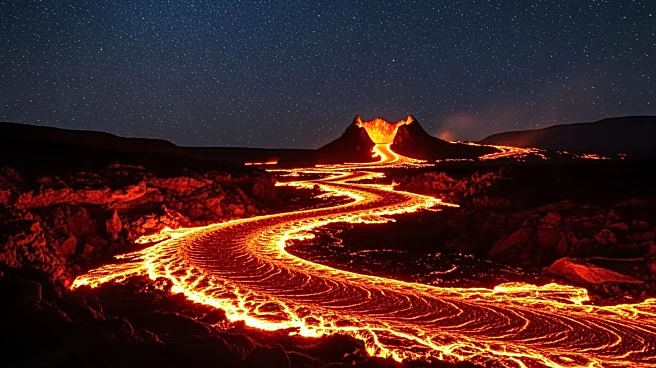What's Happening?
Researchers from Penn State and Columbia University have discovered that Earth's continents were formed and stabilized by extreme heat, exceeding 900°C, in the planet's lower crust. This heat facilitated
the upward movement of radioactive elements like uranium and thorium, which cooled and solidified the crust, enhancing its stability. The study, published in Nature Geoscience, suggests that these processes also redistributed rare earth elements, offering insights into mineral locations and potential habitable planets. The findings provide a new understanding of continental formation, challenging previous assumptions about the necessary conditions for stable crust development.
Why It's Important?
The research offers a new perspective on Earth's geological history, with implications for mineral exploration and planetary science. Understanding the conditions that led to continental stability can guide efforts to locate critical minerals essential for modern technologies, such as smartphones and renewable energy systems. Additionally, the study's insights into heat-driven processes may aid in identifying planets capable of supporting life, expanding the search for extraterrestrial habitability. The findings underscore the importance of geological research in addressing contemporary challenges related to resource management and space exploration.
What's Next?
Future research will focus on applying these findings to mineral exploration, potentially leading to new discoveries of valuable resources. Scientists will also explore the implications for planetary science, using the study's insights to refine models of planetary formation and habitability. Collaboration between geologists, astronomers, and industry experts will be crucial to leverage the study's findings for practical applications, driving innovation in resource management and space exploration.
Beyond the Headlines
The study highlights the interconnectedness of Earth's geological processes and their impact on human civilization. As researchers continue to uncover the mechanisms behind continental stability, ethical considerations regarding resource extraction and environmental preservation will become increasingly important. The findings also emphasize the role of scientific inquiry in expanding our understanding of the natural world and its potential for supporting life.









